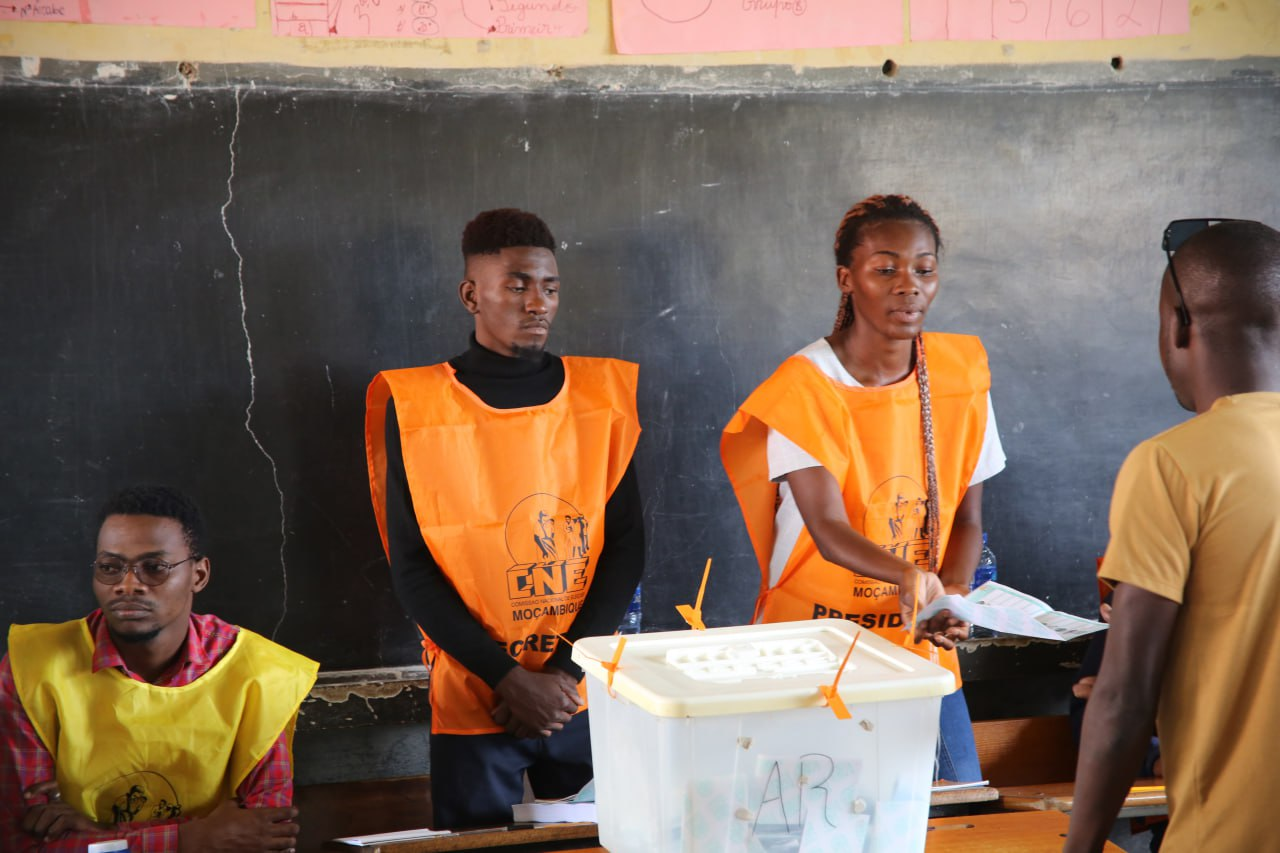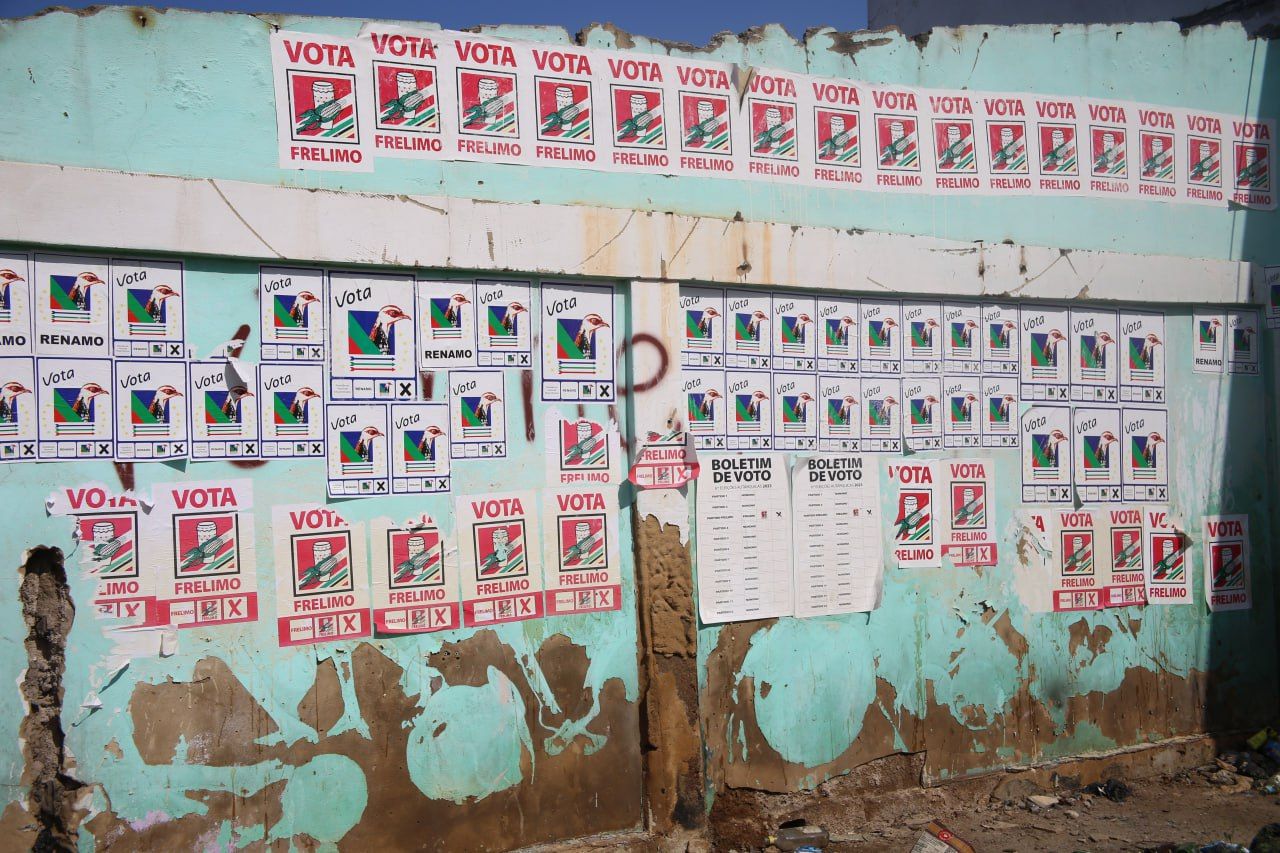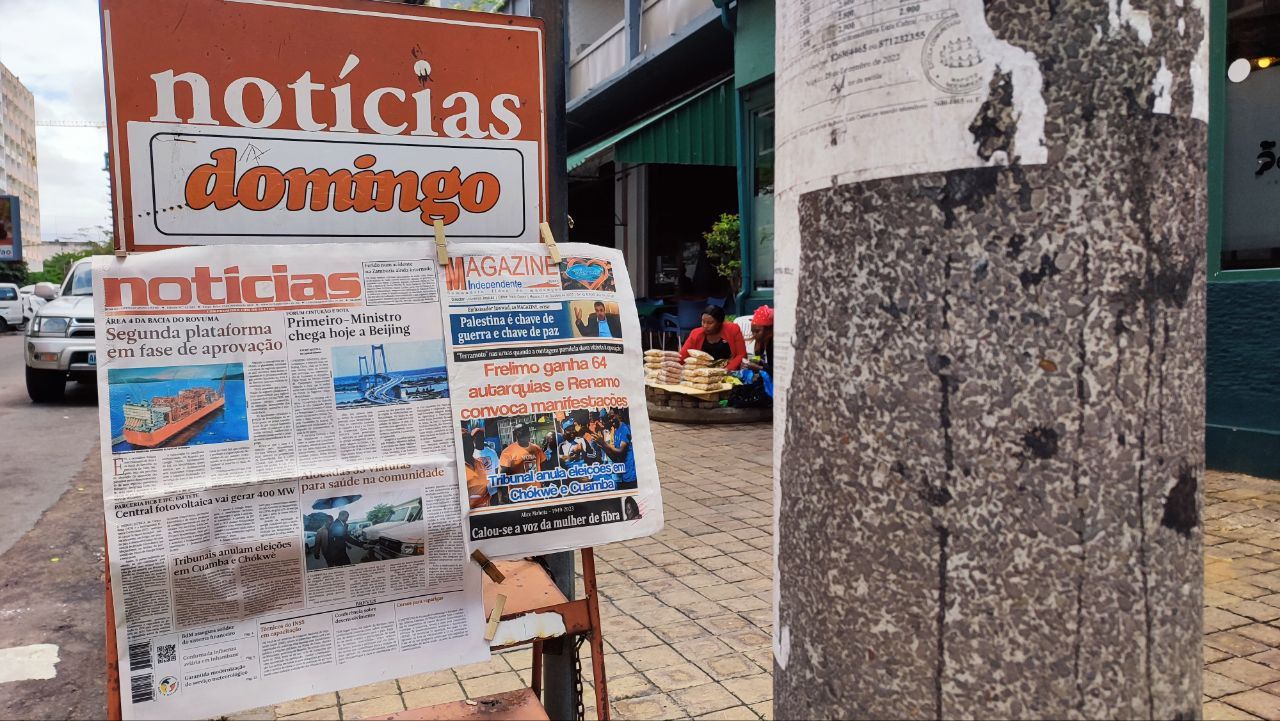This week has been dominated by the fall out from the 11 October local elections. On Monday, the anti-riot police UIR fired tear gas at hundreds of participants on a march called by Renamo in Maputo today to repudiate election results.
On Tuesday afternoon, the spokesman for the election authority CNE said that the electoral process was marred by electoral offences, which worsened when the results were tallied at the polling stations. Paulo Cuinica said that it was up to the competent bodies such as the district courts and the constitutional council to resolve the problem of the election results, since the CNE is only notified unofficially. However, he promised that all the polling station staff involved in illicit practices will be held administratively responsible, including the presidents of the polling stations who refused to sign the notices.
The opposition parties have been challenging the results so far in the courts – leading, as we wrote on Friday, some to believe that there could be more cooperation between Renamo and the MDM in future.
We have just published an article on the state of play of the various challenges underway; subscribers can read it here:

In other news, the trial on the “hidden debts” corruption scandal restarted in London on Tuesday. A ruling by the trial judge means the Mozambican government can’t use certain arguments which could implicate bank Credit Suisse.

And there'll be more to come on this story too, this week.
Have a great week ahead.
Week in Review
Monday

It is often said that a week is a long time in politics. Preliminary results from the local elections last Wednesday, which implausibly suggest that ruling party Frelimo won 64 out 65 municipalities, point to election fraud on an apparently unprecedented scale. This is arguably the greatest test of the opposition’s strength since the country’s democratic rebirth in 1994.
Several electoral complaints have already been submitted to the judiciary and no doubt Renamo’s leader Ossufo Momade would rather resolve these disputes in the courts than on the streets. Judges have already nullified the elections in Cuamba in Niassa province and Chowke in Gaza province, prompting some to speculate that Frelimo will concede a handful of smaller municipalities in exchange for the big prizes: Maputo, Matola, Quelimane and Nampula.
The Renamo party is standing behind its leader for now but Momade will be under huge pressure to reject any deals that mean conceding elections Renamo members believe they rightfully won. The alternative, however, is to threaten chaos which Frelimo could use as a pretext to suspend elections entirely. Whatever happens, Mozambique is in for another long week.
Tuesday

President Filipe Nyusi held a crisis committee about the election results (having cancelled his plans to visit China on Monday) and the widespread rumours of massive fraud being amplified by all major private TV stations, as well as “infectious” commentaries on social networks. Nyusi also spoke to Renamo’s leader Ossufo Momade yesterday. The head of state too was being confronted by different opinions within his ruling Frelimo party, with some in its inner circle calling for an 100% victory as the party had promised, even including the central city of Beira, an historical opposition bastion which Frelimo has, for now, allowed them to keep.
A tense Frelimo secretary-general, Roque Silva, told the public on Monday that the election results should be respected and complaints should follow the due process of law. It seems that in the meantime, backdoor communications were being used to defuse violence and confrontation, much as happened on the bumpy road to disarm the Renamo guerrillas, known as disarmament, demobilisation and reintegration (DDR).
Wednesday

The Mozambican government is now seeking over $3bn in damages from shipbuilding firm Privinvest in connection with the “hidden debts” or “tuna bond” corruption scandal, a court has heard. A lawyer for the government told the High Court in London yesterday that the state's case against Privinvest was worth $3.1bn, including $700m in debt repayments it had already made, $900m owed to its bondholders after debts were restructured and a further $500m in debt interest payments, subject to the court’s findings on liability. The government also wants to recover the full amount of alleged bribes, some $136m. The state is suing Privinvest, claiming that it was the victim of a conspiracy by the firm, under which state-owned companies borrowed money to finance maritime projects delivered by Privinvest, and that the scheme was used to corruptly enrich the firm, bankers and state officials. Privinvest denies wrongdoing.
After reaching an out-of-court settlement with UBS, the new owner of Credit Suisse, Mozambican strategy is to concentrate its court action on compensation it can obtain from Privinvest, since all the credit borrowed from the banks was channelled directly to the shipbuilder. Outside the courts, the government expects to reach an agreement with two branches of Russian bank VTB, creditors in the loan to one state- owned company involved in the case, ProIndicus, and sole lenders to another, Mozambique Asset Management.
Thursday

The KaMavota district court in the city of Maputo has ordered a recount of the votes in 185 of the 258 polling stations in the district, which has the largest number of voters in Maputo. The decision last night came in response to an appeal lodged by main opposition party Renamo, which complained that the results of the 185 polling stations were based on false results notices (editais) The court ordered the originals to be used, instead of copies employed by electoral authorities. Mozambique’s second largest opposition party, the MDM, has meanwhile said that it totally rejects the election results, even in Beira where it was declared the winner. It added that it wanted votes to be recounted in all municipalities where there was no certainty about the winner, and for the election to be repeated in places where there was no clarity about the resulting figures.
Also last night, the court in KaMubukwana, the Maputo district with the second largest number of voters, ruled against Renamo, with the party saying it will appeal to the Constitutional Council. Today another court is expected to rule on the KaMaxaquene municipal district, the last one in Maputo awaiting a court decision. In a separate development, the Sala de Paz election observers’ coalition was reporting on social media today that the district court of Matola had ordered a recount of the election result there, following a complaint from the opposition MDM party.
Friday

Looking ahead, it is unlikely on the current evidence that having a common cause in contesting election fraud will bring the MDM and Renamo much closer together in the longer term. In the run-up to the elections, the MDM spent a long time trying to persuade Renamo to agree to an alliance, delaying confirmation of its candidates as a result. That agreement never came. There was no great love between the parties going into the election. Renamo has always regarded the MDM, which was formed by dissident Renamo politicians, as an upstart that left it weakened, and it apparently thought it was better off fighting the elections alone. But one plausible positive outcome is that the two parties coordinate the sending of party delegates to observe voting and the vote count at polling stations. This would help ensure more pairs of eyes observing the vote, something that the last week has demonstrated is crucial in combating fraud.










